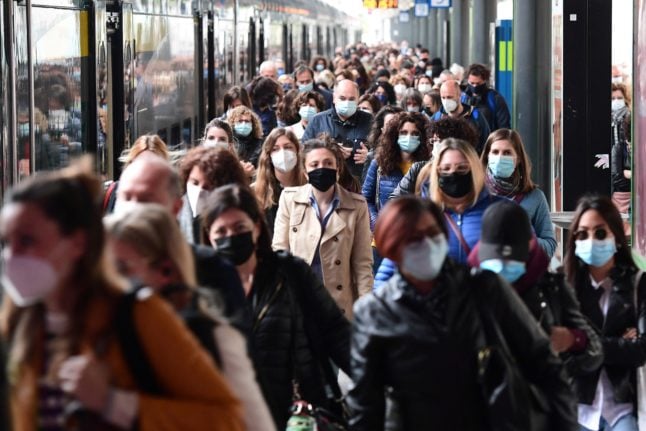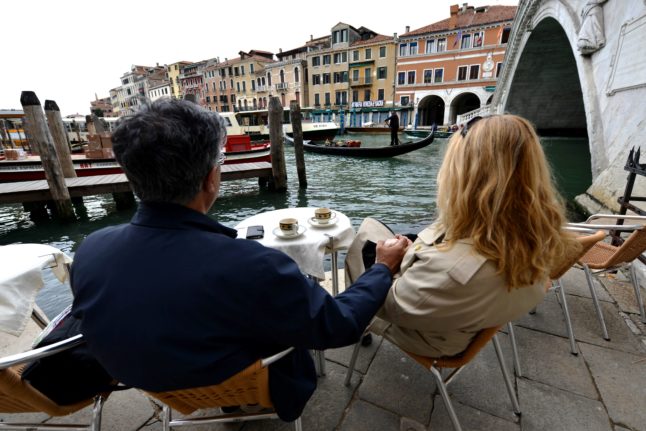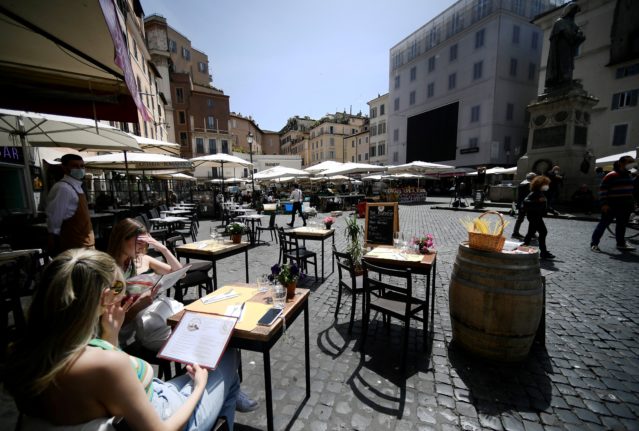Getting to Italy
Italy has extended its international travel rules and entry requirements for another month, until April 30th.
The current rules therefore remain in place; entry into Italy is allowed from any country, for any reason, provided the traveller has any one of:
- A certificate showing the holder has been fully vaccinated and boosted with a recognised Covid vaccine (see the bottom of this section for vaccines recognised by Italy).
- A certificate showing the holder has completed a primary vaccination cycle with a recognised Covid vaccine less than nine months ago.
- A certificate showing the holder recovered from a Covid infection less than six months ago.
- A negative result from a rapid antigen test taken in the 48 hours before arriving in Italy, or from a molecular (PCR) test taken in the 72 hours before arriving in Italy (the test result must be certified by an official provider – self-certifying a negative result from a DIY test does not count).
Travellers who arrive in the country without any one of these documents will not be denied entry, but will be required to self isolate for five days on arrival and test negative for Covid before they can leave quarantine.
All passengers must also complete the EU dPLF (passenger locator form) before departure, and may be denied boarding if they fail to do so.
Italy currently accepts all EMA-recognised vaccines, as well as Covishield (Serum Institute of India), R-CoVI (R-Pharm), and Covid-19 vaccine-recombinant (Fiocruz).
The Italian ‘green pass’ and equivalents
For several months now, Italy’s ‘reinforced’ or ‘super’ green pass health certificate or an equivalent, showing that the holder is vaccinated against or recently recovered from Covid, has been required to access most venues and services across the country.
As of April 1st, these requirements have been loosened, and only a limited number of venues require the ‘super green pass’. Some spaces require only the ‘basic green pass’, which can be easily obtained via a negative Covid test result from a pharmacy for those without a vaccination or recovery certificate (see ‘Getting a Covid test in Italy’, below).
All foreign-issued vaccination or recovery certificates (provided the vaccines in question are recognised by Italy – see above) are considered equivalent to the Italian super green pass and will give you access to all the same spaces.
You do not need to convert your vaccination or recovery certificate into an Italian green pass as a visitor to Italy.
People who were vaccinated in the EU or UK will have received a QR code along with their vaccine certificate that can be easily scanned and checked by public sector and service industry workers, just like an Italian green pass.
Those with an ordinary vaccination or recovery certificate without a QR code simply need to show their certificate to the person conducting the checks. You do not need a QR code for your certificate to be recognised.
Certificates that show the holder is fully vaccinated and boosted have indefinite validity as a ‘super green pass’ equivalent in Italy. Certificates showing the holder has recovered from a Covid infection or completed a primary vaccination cycle only are valid for six months from the date of the first recorded infection or the last dose.
You can find more detailed information about how the super green pass works for visitors in Italy here.
Adults travelling with children
According to the latest guidance from the Italian foreign ministry, minors under the age of six travelling to Italy are exempt from the requirement to take a Covid test to enter the country – indicating that under-sixes do not need to provide any certifications when travelling to Italy.
In the absence of more detailed instructions, it should be assumed that minors over the age of six are subject to the same requirements as adults entering the country.
Once in Italy, all children under the age of 12 are exempt from the requirement to produce a green pass or the equivalent certification to access any venues or services that otherwise require one.
Face mask rules
Face masks are no longer required outdoors in Italy, unless you find yourself in a crowded area – so you’ll need to have one readily available at all times, even if you’re not wearing it.
From April 1st, Italy relaxes its rules on the type of mask required in indoor settings.

High grade Ffp2 masks continue to be required on all types of domestic public transport (both local and long-distance); enclosed cable cars and chair lifts, including at ski resorts; and at shows, screenings, events and competitions open to the public (whether indoors or outdoors).
In all other indoor public spaces, lower grade surgical (but not cloth) masks can be used from April 1st.
READ ALSO: How do Italy’s Covid rules change in April?
Masks should be worn in nightclubs and discos, but can be removed when someone is dancing.
Children under the age of six, people whose disabilities mean the use of a mask would obstruct their breathing, and people working directly with disabled people in circumstances where the use of a mask would make communication unfeasible are exempt.
Hotels, bars and restaurants
From April 1st, Italy is scrapping the requirement for hotel guests to show a Covid health pass.
Guests will still need to produce a valid vaccination or Covid recovery certificate (referred to in Italy as a ‘reinforced’ or ‘super’ green pass) to access indoor spas, gyms and other sports facilities within the hotel, however.
These certificates have indefinite validity for those who are fully vaccinated and boosted. For those who have only undergone a primary vaccination cycle, or have recovered from Covid but are unvaccinated, they are considered valid in Italy for six months from the date of the last dose/first infection.
To dine outdoors at restaurants, no certificate of any kind is needed from April 1st.
READ ALSO: EXPLAINED: Where you now need to show a Covid green pass in Italy
For indoor restaurant dining, a ‘basic’ green pass is required. This can take the form of either a valid vaccination or recovery certificate, or a health pass obtained via a recent negative Covid test result
No health pass of any kind is required, however, to dine indoors at hotel restaurants that are reserved for the exclusive use of guests and are not open to the general public.

Museums and cultural sites
From April 1st, no health certificate of any kind is required to access museums in Italy.
The same holds true for other cultural sites and places of historic interest.
Theatres, cinemas, concert halls, nightclubs, other indoor entertainment venues and indoor sports arenas, however, do require a valid vaccination or recovery certificate.
READ ALSO: UPDATED: How do Italy’s Covid ‘green pass’ rules apply to visitors?
Outdoor sporting events and competitions can be accessed via the ‘basic’ green pass that can be obtained via a negative Covid test, or via a vaccination or recovery certificate.
Shopping
As of April 1st, the requirement to show a Covid health pass to access most shops in Italy is dropped.
From this date, no certificate of any kind is needed to enter any kind of store.
As shops are an indoor public space, face masks (either surgical or Ffp2) are required.
Individual shops or shopping centres may also at their discretion continue to limit the number of customers in the store at any one time.

Travel within Italy
Italy has scrapped its four-tiered colour-coded ‘zone’ system which awarded a Covid risk status to individual regions or towns based on their infection rate and hospital admissions data, and which sometimes placed restrictions on interregional travel.
Travel within Italy is therefore unrestricted; however throughout the month of April, the basic green pass is required on all long-distance public transport, including planes, ships, ferries, planes and coaches.
No health pass of any kind is now required for local public transport (such as city buses and trams).
A high-grade Ffp2 face mask is currently required on all public transport in Italy.
Getting a Covid test in Italy
Getting a rapid antigen or PCR test in Italy in order to obtain the basic green pass health certificate to access certain venues and services is relatively straightforward.
A large number of pharmacies in Italy provide rapid testing services; look out for signs saying ‘test Covid-19’ in the window.
If you need a PCR test you will probably have to book one at a specialist Covid testing centre, a medical lab, health centre or doctor’s office.
READ ALSO: How tourists and visitors can get a coronavirus test in Italy
Once you receive your negative result (the test can not be a home test but must be administered by the pharmacy or lab itself), the pharmacy will issue you with a basic green pass that contains a QR code.
The pass will be valid for 48 hours from the time the test was carried out in the case of a rapid test, or 72 hours in the case of a PCR test.
You can find detailed guidance on getting a Covid test as a visitor to Italy here.



 Please whitelist us to continue reading.
Please whitelist us to continue reading.
Member comments